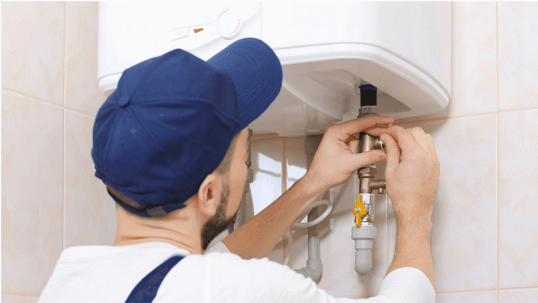What're your opinions about Water Heaters Problems?

Imagine beginning your day without your routine hot shower. That already establishes an inadequate tone for the remainder of your day.
Every residence requires a reputable hot water heater, however only a few recognize how to manage one. One very easy means to keep your hot water heater in top shape is to look for faults consistently and also repair them as soon as they appear.
Remember to turn off your hot water heater before sniffing about for mistakes. These are the hot water heater faults you are more than likely to come across.
Water too warm or too chilly
Every hot water heater has a thermostat that figures out just how warm the water gets. If the water coming into your house is too warm regardless of establishing a practical maximum temperature, your thermostat might be faulty.
On the other hand, too cold water might result from a stopped working thermostat, a damaged circuit, or improper gas circulation. For instance, if you use a gas hot water heater with a damaged pilot light, you would certainly obtain cold water, even if the thermostat is in excellent condition. For electric heating units, a blown fuse might be the perpetrator.
Inadequate warm water
Hot water heater can be found in many sizes, depending upon your hot water needs. If you lack warm water before every person has had a bath, your water heater is also tiny for your family size. You should think about setting up a larger water heater tank or choosing a tankless water heater, which takes up less area as well as is much more resilient.
Unusual noises
There go to the very least five kinds of sounds you can speak with a water heater, but one of the most typical interpretation is that it's time for the hot water heater to retire.
Firstly, you ought to know with the typical sounds a hot water heater makes. An electric heating system may appear different from a gas-powered one.
Standing out or banging noises generally indicate there is a piece of sediment in your containers, and it's time to cleanse it out. On the other hand, whistling or hissing sounds may merely be your valves letting some stress off.
Water leaks
Leaks might originate from pipes, water connections, shutoffs, or in the worst-case scenario, the storage tank itself. With time, water will corrode the storage tank, and locate its way out. If this happens, you require to change your hot water heater immediately.
Nonetheless, before your adjustment your entire container, make certain that all pipes are in place which each valve functions flawlessly. If you still need assistance identifying a leakage, call your plumber.
Rust-colored water
Rust-colored water implies one of your hot water heater components is worn away. It could be the anode pole, or the storage tank itself. Your plumber will have the ability to determine which it is.
Warm water
No matter just how high you established the thermostat, you will not get any type of warm water out of a heater well past its prime. A water heater's effectiveness may minimize with time.
You will certainly additionally obtain warm water if your pipelines have a cross link. This suggests that when you switch on a tap, warm water from the heating unit streams in alongside normal, cold water. A cross connection is easy to place. If your hot water taps still run after closing the water heater shutoffs, you have a cross connection.
Discoloured Water
Corrosion is a major reason for unclean or discoloured water. Rust within the water container or a stopping working anode pole might create this discolouration. The anode pole safeguards the storage tank from rusting on the within and need to be checked yearly. Without a pole or a properly functioning anode rod, the hot water promptly wears away inside the container. Call an expert hot water heater service technician to figure out if replacing the anode pole will take care of the issue; otherwise, replace your hot water heater.
Verdict
Preferably, your hot water heater can last ten years before you need an adjustment. Nonetheless, after the 10-year mark, you might experience any of these faults a lot more frequently. At this moment, you must include a new water heater to your spending plan.
How To Troubleshoot 3 Common Water Heater Problems in Twin Cities
The Water Heater Is Leaking
- A leaky cold water inlet valve
- A loose pipe fitting
- A leaky temperature and pressure relief valve
- A corroded anode rod
- A cracked tank
Turn Off Your Water Heater:
- Shut off your gas water heater by turning the gas valve on the unit to the “OFF” position.
- Shut off your electric water by switching its power off at your electrical panel. Look for a two-pole breaker labeled “water heater” and turn it to the “OFF” position. Move the ball valve connected to the water heater to be perpendicular to the piping at a 90° angle.
Look for the Leak:
Depending on whether the water is coming from the tank's top or bottom, you’ll want to look for the leak in different locations.
If the leak comes from the top of the tank, carefully look for water escaping from the cold water inlet valve or loose pipe fittings. Rusted hot and cold water valves can have loose connections with the tank, with water leaking out of them.
https://mspplumbingheatingair.com/blog/how-to-troubleshoot-3-common-water-heater-problems
As an enthusiastic reader about Common Problems with Your Home Water Heater, I was thinking sharing that piece of content was a good idea. Kindly take a moment to distribute this blog post if you liked it. I recognize the value of reading our article about Water Heater Repair and Troubleshooting.
We're your solution!
Comments on “Typical Heater Complications Explained”